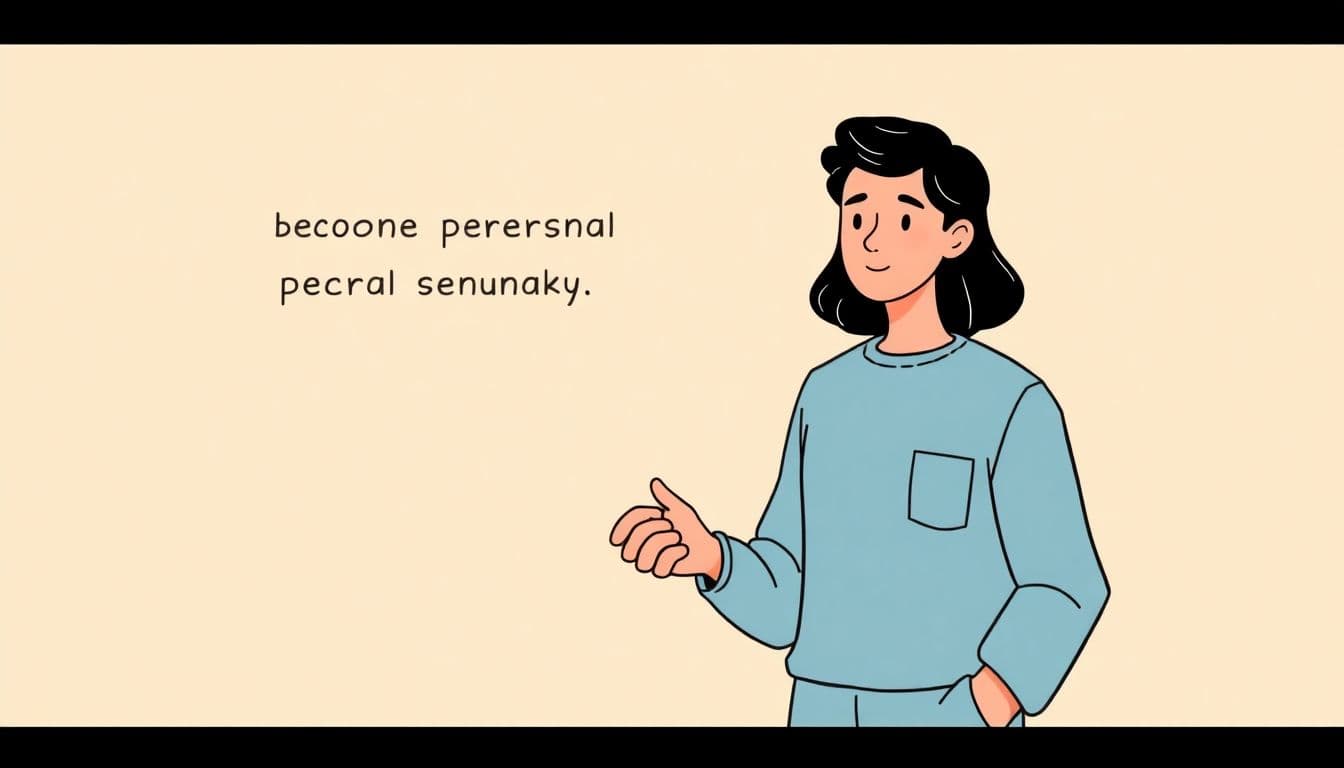Table of Contents
Are you feeling stuck in a writing rut? Trust me, we’ve all been there, staring at a blank page while our creativity takes an unexpected vacation. One word writing prompts can be a game changer, sparking your imagination and giving you that much-needed nudge to get started.
If you stick around, I promise to show you just how easy and fun one word prompts can be. With simple tips and creative strategies, you’ll find yourself diving back into writing with renewed energy and inspiration.
In this guide, we’ll explore what one word writing prompts are, how to use them effectively, and plenty of examples and activities to keep your creativity flowing. Let’s turn that blank page into a canvas of ideas!
Key Takeaways
- One word writing prompts are single words that inspire creative writing.
- They simplify the writing process, freeing you from detailed outlines.
- Types include emotional, visual, thematic, and random prompts to explore different ideas.
- Activities such as timed writing sessions can boost creativity and stamina.
- Online resources and writing communities are great places to find prompts.
- Creating your own prompts allows for a personalized writing experience.

What are One Word Writing Prompts?
One word writing prompts are exactly what they sound like: a single word or term that serves as inspiration for your writing.
These prompts can kick-start your creativity, acting as a springboard for stories, poems, or even journal entries.
The purpose of using one word prompts is to simplify the writing process, allowing you to focus on a single idea or theme without the pressure of crafting a complete outline ahead of time.
But why stop there? The benefits extend beyond just getting started. These prompts encourage spontaneity and exploration, which can lead to discovering new styles or themes within your writing.
How to Use One Word Writing Prompts
Getting started with one word writing prompts can be simple and fun. First, pick a word that resonates with you, whether it’s an emotion, a concept, or even an object you see around you.
Next, allow yourself some time to brainstorm ideas related to that word. Jot down any thoughts, images, or stories that come to mind without censoring yourself.
Once you’ve got some ideas flowing, you can start expanding on those initial thoughts. Consider the characters, settings, or conflicts that might emerge from your chosen word.
A great strategy is to set a timer for ten minutes and just write whatever comes to your mind concerning the prompt. You’d be surprised at what you can create in such a short amount of time!
Types of One Word Writing Prompts
One word writing prompts can be categorized into several types, each serving a different purpose.
Emotional prompts might include words like “fear” or “joy,” pushing you to explore these feelings deeply in your writing.
Visual prompts focus on imagery and might consist of words such as “ocean” or “forest,” prompting you to paint a picture with your words.
Thematic prompts encourage broader story ideas centered around concepts like “freedom” or “betrayal,” inspiring more complex narratives.
Finally, random prompts can be completely unexpected, like “umbrella” or “cactus,” challenging you to stretch your imagination and make connections you wouldn’t normally consider.
One Word Writing Prompt Examples
Looking for some inspiration? Here are a few one word writing prompts to get those creative juices flowing:
- Hope: Explore the power of hope in a character’s life or a situation that seems hopeless.
- Journey: Write about a physical or emotional journey. Where does it lead?
- Secret: Unravel the hidden aspects of a character’s life or a buried truth.
- Whisper: Delve into quiet moments that speak volumes.
Each of these words can open new pathways for creativity, urging you to think outside the box as you write.

Activities Using One Word Writing Prompts
If you’re looking to elevate your writing practice, incorporating one word writing prompts into specific activities can make all the difference.
One simple exercise is to set aside a few minutes each day for a dedicated writing session.
Pick a word from your collection of prompts, and write nonstop for ten minutes.
Don’t worry about grammar or coherence; just let your thoughts flow freely.
This exercise helps build writing stamina and sparks creativity.
Another fun activity is to join or create a group writing challenge.
Gather a few friends or fellow writers and agree on a specific one word prompt.
After a set amount of time, share your stories or pieces with each other.
This not only provides motivation but also offers a chance for feedback and inspiration.
Journaling is another excellent way to use one word prompts.
At the start of each week, select a word, and reflect on it daily in your journal.
You can think about how the word applies to your life or experiences, which can deepen your writing practice.
Overall, mixing up your writing routine with these activities can invigorate your creativity and keep you engaged.
Where to Find One Word Writing Prompts
There are plenty of places to discover one word writing prompts that fit your style and spark creativity.
Online resources are an obvious starting point.
Websites like Writopia Lab and Writers Write offer curated lists of prompts that you can browse through for inspiration.
If you prefer printed material, various books and writing guides contain collections of prompts.
Titles like “The 3 A.M. Epiphany” by Brian Kiteley are great for discovering both one word prompts and other writing exercises.
Don’t overlook writing communities and forums, either.
Platforms like Wattpad and Reddit’s /r/writingprompts not only provide prompts but can also connect you with fellow writers for collaborative projects.
Engaging with these communities can lead to sharing ideas and discovering new perspectives on the same prompts.
In short, whether online or in print, a wealth of resources is at your fingertips for finding one word writing prompts.
Tips for Creating Your Own One Word Writing Prompts
Creating your own one word writing prompts can be an exciting way to personalize the writing experience.
Start by brainstorming themes or interests that resonate with you.
Think about emotions, objects, places, or concepts that you find intriguing.
If you have trouble getting started, try flipping through magazines or browsing images online for inspiration.
Once you have a potential word in mind, consider what makes it special or interesting.
Is there a story behind it? Does it evoke a strong feeling?
Make sure your prompts encourage exploration and don’t be afraid to make them a bit unusual.
For example, words like “door” might lead to thoughts about opportunities, while “shadow” could spark ideas about secrets or fears.
Finally, test your prompts by writing a short piece.
If the word works for you, it’s likely to work for others too!
By creating your own prompts, you can tailor your writing experience to better suit your creative inclinations.

Conclusion and Next Steps
Wrapping up the conversation on one word writing prompts, it’s clear they’ve got a special place in the hearts of many writers.
Whether you’re a seasoned author or just starting to explore your writing voice, these prompts can provide a fresh perspective.
Don’t be shy! Grab a notebook or open a fresh document and try writing with a prompt today.
Start small; pick one word and see where your thoughts lead you.
You might discover new themes, characters, or ideas that spark your interest.
Additionally, consider exploring different genres as you write, stretching those creative muscles.
If you’re looking for more ways to enhance your writing practice, check out various writing resources available online.
Websites like Novelty Writing offer courses and workshops tailored to boost your creative skills.
And don’t forget communities! Engaging with fellow writers can offer new insights and inspiration.
So as you close this article, remember: the next time you find yourself in a creative rut, a simple word may hold the key to your next writing adventure.
FAQs
One Word Writing Prompts are single words intended to inspire creativity and generate ideas for writing. They help writers overcome blocks, stimulate imagination, and enhance writing skills by focusing on a specific theme or emotion.
To get started, choose a word that resonates with you. Write freely for a set time without editing or overthinking. Use association techniques to brainstorm related ideas and expand your thoughts into a story or poem.
You can find One Word Writing Prompts online through dedicated websites, writing blogs, and social media groups. Additionally, various writing guides and prompt books offer curated lists of prompts for inspiration.
To create your own prompts, brainstorm a list of impactful words. Consider emotions, themes, and experiences to derive words. Aim for versatility to engage creativity and encourage different interpretations across various writing styles.



